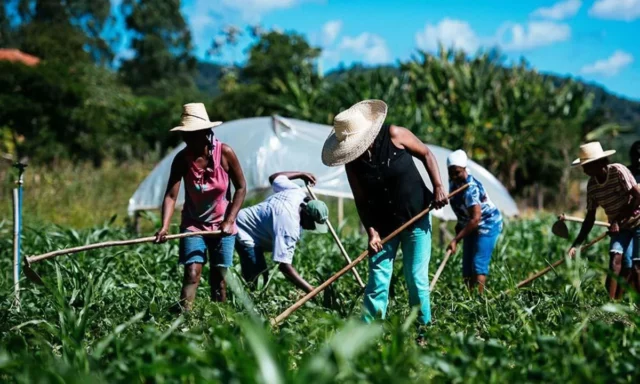Farmers from indigenous territories received sexual seeds, such as creole materials for rice and improved varieties of beans and corn, as well as asexual seed, including cassava, plantain and sweet potato.
Through the project “Strengthening capacities in seed production for adaptive and resilient agriculture”, these farmers from Alto Comte Burica, Boruca, Térraba, Ujarrás, Salitre, Rey Curré, Cabagra, China Kichá, Maleku, Zapatón , Talamanca cabecar and bribri, received open-pollinated seeds from the germplasm bank of the Tropical Agricultural Research and Higher Education Center (CATIE).
The main objective of this project of the National Seed Office (ONS) is to promote the use, exchange and development of seeds accessible to family farmers and local communities, through the effort between Fundecooperación para el Desarrollo Sostenible, the Instituto National Institute for Innovation and Transfer of Agricultural Technology (INTA), the National Commission for Biodiversity Management (Conagebio), the National Indigenous Roundtable and the Mesoamerica Hunger-Free Program AMEXCID-FAO.
“Working with INTA, for example, in the regeneration and reproduction of traditional materials that were relocated to places where they were previously produced, which have very favorable adaptation characteristics and require less use of chemical inputs, is strategic, enriching and empowering.”, explained Tania López, executive director of the ONS. Through this initiative, they also promote an adaptive and climate-resilient agriculture, which favors the development of a formal and informal seed sector.
Seeds without chemical treatment
The creole variety, according to the substitute text of the seed law, is a native variety, developed by farmers empirically over the years, which is selected from germplasm and introduced from a base creole variety, without commercial criteria strict.
The seed collection process was carried out throughout the country, and with the financing of the project, they were planted in the plots in experimental stations. For example, plantain and sweet potato seeds were planted at the Turrubares Technical College.
According to the FAO, the seeds provided do not have any type of chemical treatment. “When we refer to improved varieties, it means that there was a conventional improvement in the field to be able to select certain important characteristics. They are seeds that people can collect, in the case of rice and cassava, they are completely native seeds,” reported Rebeca León, from the FAO Communications Office.

Seed systems increase resilience of food systems
According to the organizers of the project, the seed systems that farmers have, increase the resilience of food systems, especially in the face of climate change, diseases and pests. Local seeds are also considered biocultural heritage, which enriches the population and agri-food systems.
Andrea Padilla, assistant representative of the FAO, said that “Creole seeds are the basis of agriculture and food, and have great nutritional and sociocultural value, therefore, it is transcendental to strengthen people’s knowledge about family farming and local communities”.

For those who have experienced shifts in consciousness and know that more peace, joy, and love awaits in a better living environment. A bold shared vision. A living community and hub for innovation. A sustainable ecosystem for living and working. A model for the new future.
